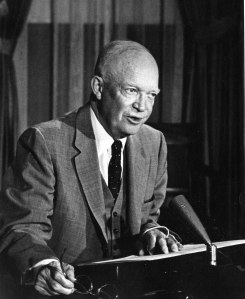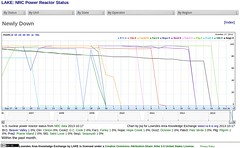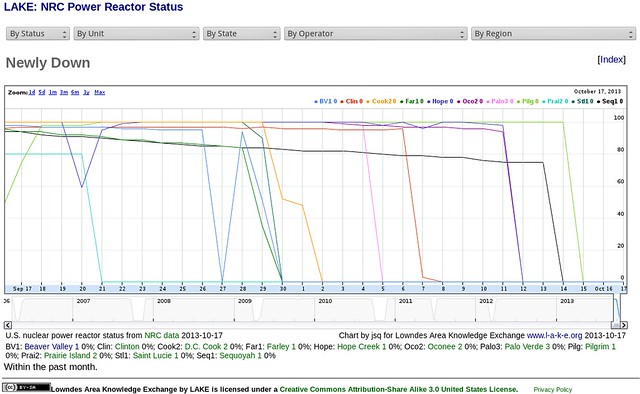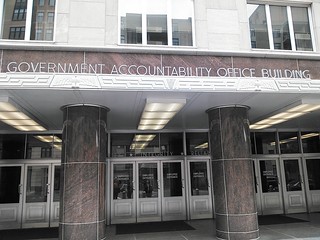A Virginia electric utility bought a solar project near Georgia Power’s nuclear plant Vogtle, and has been busily buying up four more, in Indiana and Connecticut. The Georgia electric customer is recent coal-to-solar convert Cobb EMC, not Georgia Power. This is the same Dominion Power that got Virginia to legalize its “standby charge” of a monthly fee for individuals to connect solar to its grid. Is Dominion trying to beat Edison Electric’s warning of the disruptive challenge of rooftop solar by building large solar plants? If so, it’s a start, with quite a few construction jobs. And all of this new solar power is expected to be online this year, a lot faster than nuclear….
Dominion says of its Azalea Solar Power Facility:
Dominion announced on March 1, 2013, that it has acquired a solar energy development project in Georgia from Smart Energy Capital and Jacoby Development. The expected start of commercial operations is Dec. 1, 2013. (> View our news release for complete details.)
Dominion’s Azalea Solar Power Facility is planned to produce approximately 7.7 megawatts (AC) using photovoltaic technology. Dominion will select a contractor and oversee the construction of the project. The 40-acre project is located on Continue reading



![168292900_900x675[1]](http://www.exposingthetruth.co/wp-content/uploads/2013/09/168292900_900x6751-300x225.jpg)











